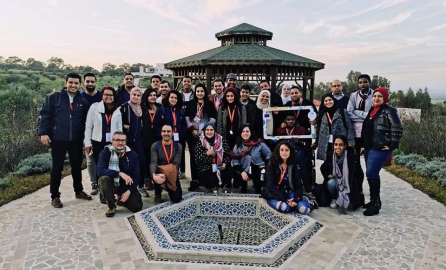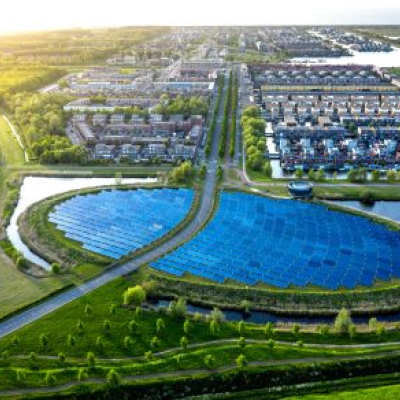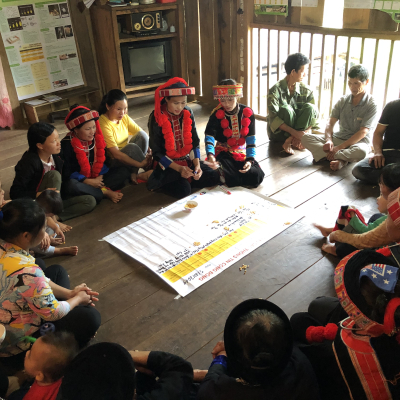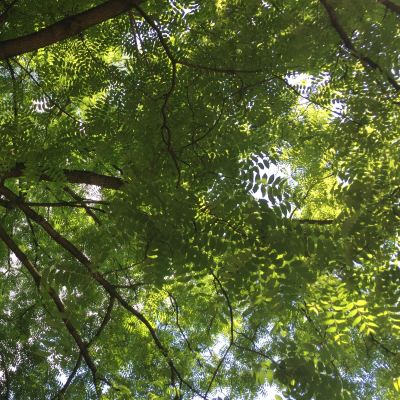30 young activists from 10 South Mediterranean countries joined an EU-funded regional Bootcamp in January 2020 to discuss regional climate and environmental issues and to take action. This initiative created a movement, which empowered a new generation of young environmental leaders and developed synergies across borders.
➤ Click here to read the key takeaways from the EU MED Dialogue Fellows programme
During almost four months, the EU MED Dialogue for Rights and Equality Fellows attended coaching sessions and received individual support from technical experts to plan and build their own projects. The projects were then carried out in June 2020 in the framework of a collective regional common action, named “10 Days for the Mediterranean”.
Dhekra Elhidri and Rida Boutros took part in this EU MED Dialogue regional common action. Both are experienced environment leaders. Rida Boutros is the Project Coordinator of the Lebanese association Jouzour Loubnan, which focuses on reforestation and biodiversity conservation. Dhekra Elhidri is a trained agronomist and engineer who works in Tunisia for the local organisation Change Alliance for Development.
Practical tools for concrete actions
“One of the key lessons that I have learnt from this experience, is that youth can make a difference, but we need a network and support around us to move faster,” said Rida Boutros. For Dhekra Elhidri, the skills she received at the Bootcamp will impact the way she plans and implements future projects. “I enjoyed discovering new tools. What we got were practical tips on how to lead effective and relevant climate and environmental projects.” You can find out more by looking at the specific actions implemented for each organisation.
The Fellows discussed the main environmental challenges in the Mediterranean region, the principles of ecological sciences, political ecology and eco-management. “We provided them with tailor-made coaching sessions on how to elaborate and implement a regional common action. Time was spent to identify the concept, the common issues of action and how to plan and implement the selected projects,” said Gianluca Solera, MED Dialogue Programme Team Leader. The issues selected by the fellows are: climate change, agroecology and forests, plastic waste, and marine pollution.
In the following video, Kristina Prunerová, DG NEAR Programme Manager, presents the programme and its action with youth.
The MENA region: challenges in biodiversity and climate change
The Middle East and North African region (MENA) is affected by climate change and biodiversity degradation in many ways. Increasing high temperatures are expected to severely impact people’s health and economy. Cities will become too hot and rural areas too dry. On the other hand, unlimited human activity, exploitation of natural resources, intensive agriculture and urban sprawl, are rapidly reducing ecosystems’ space. For the Bootcamp Fellows, acting on these issues is more than a job, it is a vital necessity.
The Mediterranean Sea is already suffering from the consequences of climate change and environmental threats. Plastic pollution is one of them. The concentration of plastic marine litter in the Mediterranean is the highest in the world, with direct consequences for aquatic life and ultimately for people whose livelihood depend on sea and marine ecosystems.
In the following video, Rida Boutros recalls the Bootcamp and the key lessons she learnt during that event.
Key takeaways from the EU MED Dialogue Fellows programme:
- Time and space. The time dedicated to discussing and defining the concepts and the common issues of the projects with the Fellows were essential to the success of this initiative. “The initial discussions took time, but it was much needed to ensure the full participation of all the Fellows. We also organised the Bootcamp in a very special place, in an ecological farm in the outskirts of Tunis. It immediately invited us to think outside the box, be creative and work collaboratively,” said Gianluca Solera.
- Local actions with a regional impact. The projects developed and implemented by the Fellows took part locally, but they were implemented simultaneously in 10 countries, which gave this project a regional dimension.
- Towards a common movement. “What was important throughout the Bootcamp was the development of a common critical mass,” said Gianluca Solera. “What made the participants so energetic was the idea of working together, as one movement.” The Bootcamp gave the Fellows a sense of inclusion. It promoted resilience and confirmed the importance of their engagement to protect nature.
- Peer-to-peer support. “One important experience for me was to meet and work with another Fellow,” said Dhekra Elhidri. “This collaboration brought me a new friend and a new colleague. It also encouraged me to understand and address the climate issue from a different perspective, across the Middle East and North Africa (MENA).”
- Connecting youth to the decision-making process. Opportunities for young people from the MENA region to participate in public debate are increasing but still limited. The participants from the Bootcamp have received a set of tools and guidance to strengthen and encourage their work and become strong public voices for climate and environment.
- Multiple components. Med Dialogue Fellows is a fellowship programme, which offers multiple opportunities to the selected Fellows: (a) Participating in the Med Dialogue Fellows Bootcamp; (b) Developing a regional common action; (c) Getting involved in other activities through a “mobility fund”; and (d) Joining the Med Dialogue Alumni Network.
Watch the best moments of the Med Dialogue Fellows Bootcamp - addressing the ecological challenges in the Mediterranean - held between 27-31 January 2020.
Want to stay informed?
You can enable notifications on the programme's page: Med Dialogue for Rights and Equality -The Mediterranean we want, Dialogue, CSOs, NSAs, activists, civil society, South Neighbourhood
The participants of the Youth Bootcamp were from the following 10 countries: Algeria, Egypt, Jordan, Lebanon, Libya, Mauritania, Morocco, Palestine, Tunisia, Syria and respective diaspora, knowing that cooperation between the EU and Syrian government is currently suspended until further notice.
Credit: Videos © Capacity4dev & MED Dialogue for Rights and Equality | Photo © MED Dialogue for Rights and Equality







Log in with your EU Login account to post or comment on the platform.